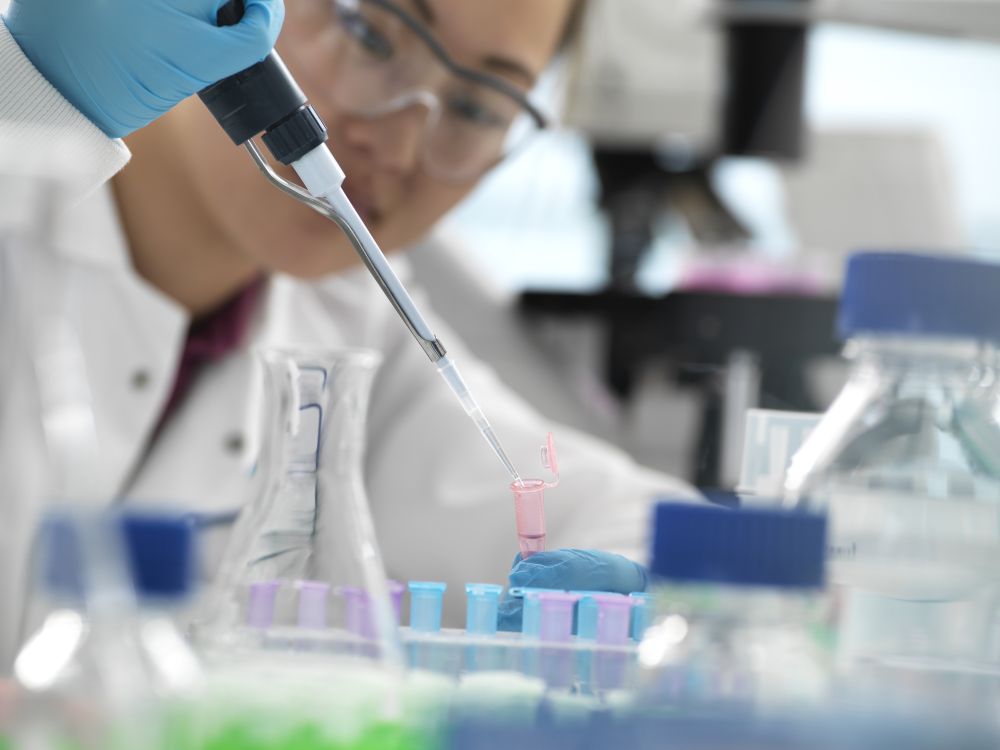Although the terms “genetic” and “genomic” are often used interchangeably, they are actually very different. Learning more about the differences between them can help clear up some of the confusion we often see related to hereditary genes linked to developing cancer.
Genetic Testing
Genetics usually refers to the study of specific, individual genes and whether they are passed from one generation to the next. Cancer researchers have studied hereditary gene abnormalities (changes) that can play a role in the development of cancer.
Genetic tests are medical tests that look for certain inherited gene abnormalities. This allows the genetic counselor to understand if the person being assessed is at a higher risk for developing certain kinds of cancers - such as breast cancer, ovarian cancer, colon cancer, prostate cancer, or others.
People who go through genetic testing do not necessarily have cancer – now or in the past. A genetic counselor will help you decide if genetic testing could give you potential benefits, and if there is even a suggested family history that would make genetic testing worthwhile.
The presence of one or more of the following may suggest a hereditary cancer syndrome could be present and the patient or their family members may want to talk to a genetic counselor about conducting genetic tests.
- Cancer that was diagnosed at an unusually young age
- Several different types of cancer that have occurred independently in the same person
- Cancer that has developed in both organs in a set of paired organs, such as both kidneys or both breasts
- Several close blood relatives that have the same type of cancer (for example, a mother, daughter, and sisters with breast cancer)
- Unusual cases of a specific cancer type (for example, breast cancer in a man)
- The presence of birth defects, such as certain noncancerous (benign) skin growths or skeletal abnormalities, that are known to be associated with inherited cancer syndromes
Genomic Testing
Genomics refers to an organism’s entire genetic makeup (DNA), which is called a genome. In cancer patients, genomics addresses all genes and how they are interrelated within the cancer. This can determine more about how the cancer will behave.
With genomic testing, the genomic makeup of abnormalities, within the cancerous tissue can be identified. This means that genomic testing is used for patients that have been diagnosed with cancer, versus genetic testing which is routinely used as a precaution for someone who has not been diagnosed with cancer.
If the cancer care team can understand the genetic abnormalities that could be driving the cancer’s growth, they can often determine how aggressive the cancer is or whether it is likely to spread to other parts of the body. Understanding how the cancer is likely to act can impact the course of treatment that is recommended. If a targeted therapy is available and used for that type of cancer, it will attack only the specific mutation without causing harm to normal cells. This is less toxic for patients, reducing side effects.
How Genetic and Genomic Testing Impact Cancer Care
Even though these types of tests are different, they can both have a positive impact on a patient’s cancer care and/or on a family’s ability to screen more carefully for cancers that have a hereditary link.
- Understanding the genetic risks of a patient can help physicians detect cancer early when treatment is most effective as well as implement strategies that can help patients prevent or reduce their risk of developing cancer.
- Understanding the genomic profile of a patient’s cancerous tumor allows physicians to administer a more precise (targeted) treatment if one is available.
Genetic and genomic testing is not for everyone. It is important to talk with your doctor or a genetic counselor to determine if you would be a good candidate for either type of testing.
Sources:
• https://www.cancer.org/cancer/cancer-causes/genetics/understanding-genetic-testing-for-cancer.html
• https://www.genome.gov/18016863/a-brief-guide-to-genomics/
• http://www.who.int/genomics/geneticsVSgenomics/en/




